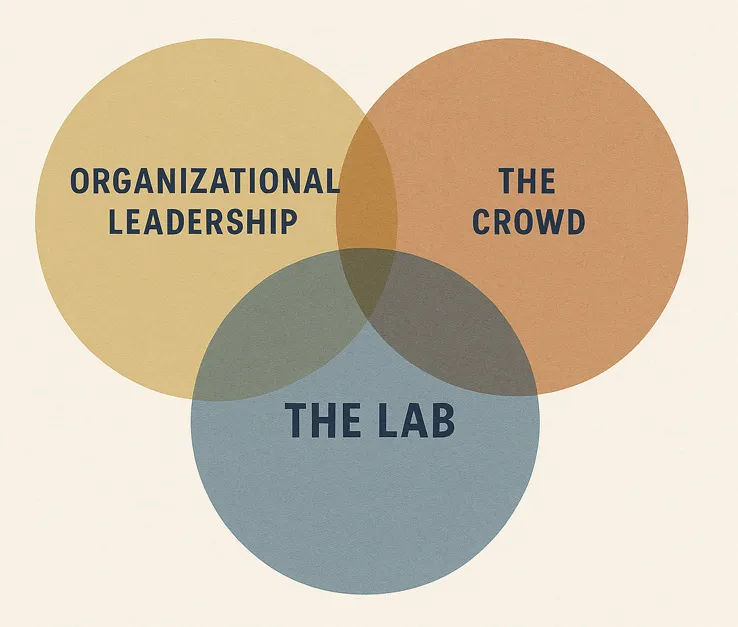Making AI Work: Leadership, Lab, and Crowd — from oneusefulthing.org by Ethan Mollick
A formula for AI in companies
How do we reconcile the first three points with the final one? The answer is that AI use that boosts individual performance does not naturally translate to improving organizational performance. To get organizational gains requires organizational innovation, rethinking incentives, processes, and even the nature of work. But the muscles for organizational innovation inside companies have atrophied. For decades, companies have outsourced this to consultants or enterprise software vendors who develop generalized approaches that address the issues of many companies at once. That won’t work here, at least for a while. Nobody has special information about how to best use AI at your company, or a playbook for how to integrate it into your organization.
.
Galileo Learn™ – A Revolutionary Approach To Corporate Learning — from joshbersin.com
Today we are excited to launch Galileo Learn™, a revolutionary new platform for corporate learning and professional development.
…
How do we leverage AI to revolutionize this model, doing away with the dated “publishing” model of training?
The answer is Galileo Learn, a radically new and different approach to corporate training and professional development.
…
What Exactly is Galileo Learn™?
Galileo Learn is an AI-native learning platform which is tightly integrated into the Galileo agent. It takes content in any form (PDF, word, audio, video, SCORM courses, and more) and automatically (with your guidance) builds courses, assessments, learning programs, polls, exercises, simulations, and a variety of other instructional formats.
Designing an Ecosystem of Resources to Foster AI Literacy With Duri Long — from aialoe.org
Centering Public Understanding in AI Education
In a recent talk titled “Designing an Ecosystem of Resources to Foster AI Literacy,” Duri Long, Assistant Professor at Northwestern University, highlighted the growing need for accessible, engaging learning experiences that empower the public to make informed decisions about artificial intelligence. Long emphasized that as AI technologies increasingly influence everyday life, fostering public understanding is not just beneficial—it’s essential. Her work seeks to develop a framework for AI literacy across varying audiences, from middle school students to adult learners and journalists.
A Design-Driven, Multi-Context Approach
Drawing from design research, cognitive science, and the learning sciences, Long presented a range of educational tools aimed at demystifying AI. Her team has created hands-on museum exhibits, such as Data Bites, where learners build physical datasets to explore how computers learn. These interactive experiences, along with web-based tools and support resources, are part of a broader initiative to bridge AI knowledge gaps using the 4As framework: Ask, Adapt, Author, and Analyze. Central to her approach is the belief that familiar, tangible interactions and interfaces reduce intimidation and promote deeper engagement with complex AI concepts.









